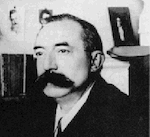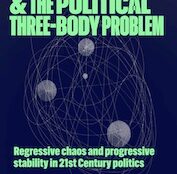STEVE THOMPSON sketches a brief profile of Robert Blatchford, the founding editor of The Clarion newspaper, who campaigned for socialism as a way of life.
“Make socialists and you will get socialism,” said Robert Blatchford. He identified two socialisms – ideal socialism and practical socialism – arguing that making socialists, socialising the nation, is very different to campaigning for votes.
Ideal socialism was social organisation based on co-operation, political awareness and education, community, culture and solidarity.
Practical socialism, on the other hand, was about making a series of reforms, such as nationalisation of the means of production and the eight-hour day. It depended on representation in Parliament and other political bodies.
He asked of the socialist movement, is the object to socialise the nation or to gain socialist representation in Parliament? Or are they mutually dependent?
Without social solidarity and politically aware communities, Blatchford argued, it is always doubtful whether socialist and Labour candidates will be elected, as the vested interests can marshal their resources to defeat socialist and Labour candidates.
Blatchford was born in Maidstone on 17 March 1851 and at 14 became an apprentice to a brushmaker. It was a job he didn’t like, so he joined the army and reached the rank of sergeant major. He left the service in 1878 and became a freelance journalist before being hired as leader writer for the Sunday Chronicle in Manchester.
In 1890 he founded the Manchester Fabian Society and the following year he launched The Clarion newspaper. The first edition came out on 12 December 1891 and was sold on the streets of Manchester. By 1901 it had a weekly readership of 40,000.
Blatchford also wrote a book called Merrie England, which eventually reached two million people and probably made more socialists that any other publication. The first edition, published in 1892/3 with a print run of 25,000, rapidly sold out. A penny edition was published in 1894 and all 700,000 copies sold out, although after paying union rates to the printers, it made a loss.
A machine for knowledge
Blatchford had been a member of the Social Democratic Federation, which had existed for 10 years by the time The Clarion first appeared. But he became a founder member of the Manchester Independent Labour Party and attended the founding conference of the national ILP in Bradford in January 1893.
Blatchford wrote in The Clarion on 28 May 1892 that the ILP was “something more than a mere Labour electoral club. It is something more than a mere socialist society. It is an organisation formed to rouse, to educate, and to unite the vast inert masses of the workers, and to give the strength of sympathy and cohesion to the scattered companies and isolated forlorn hopes of social reformers. It will do more than bring out Labour candidates. It will constitute itself into a great machine for the spreading of knowledge, for the destruction of falsehoods, for the investigation of all national and local administrative affairs.”
At the conference he argued for what was known as ‘the fourth clause’, which stated that socialists should abstain from voting at elections in the absence of Labour or socialist candidates. The conference disagreed in favour of making electoral compromises with the Liberals.
For Blatchford “working within an unchanged political system for piecemeal change, for any other reason than a propagandist one, was anathema”.
He accepted the conference decision, but lost confidence in the ILP and put his energies into The Clarion, which became more of a movement than a newspaper, fostering cycling and rambling clubs, a vocal union, Cinderella clubs, glee clubs and drama groups.
As Margaret Cole wrote in her 1948 book, Makers of the Labour Movement:
“There was never a paper like it; it was not in the least the preconceived idea of a socialist journal. It was not solemn; it was not highbrow; it did not deal in theoretical discussion, or inculcate dreary isms. It was full of stories, jokes and verses – sometimes pretty bad verses and pretty bad jokes – as well as articles.
“It was written in language which anyone can understand, ‘with no middle class unction’ … it believed that anyone whatever his condition or education, who could read plain English, could be made into a socialist, and that socialism was not a difficult dogma, but a way of living and thinking which could make all men behave like brothers in the ordinary pursuits of life.”
For Blatchford, socialism was indeed a way of life. It was about good relationships and healthy communities; about art, recreation, the appreciation of the good things in life and social interaction. It was about solidarity and self-respect based on political awareness and understanding the inevitable class conflicts which arise from exploitation. It was about political insight and collective self-defence by working class communities.
It was not about ‘working the political system’ by making deals with Liberals and others to achieve piecemeal concessions on social improvement. Today we would call this approach ‘top down’, something that was anathema to Blatchford. He died on 17 December 1943.
—-
Steve Thompson is a director of Principle 5 Yorkshire Co-operative Resource Centre.
The author is grateful to Dr Martin Wright of the history department at St David’s University Lampiter for his chapter, ‘Robert Blatchford, the Clarion Movement, and the crucial years of British socialism, 1891-1900’ in Edward Carpenter and Late Victorian Radicalism, edited by Tony Brown (1990).



